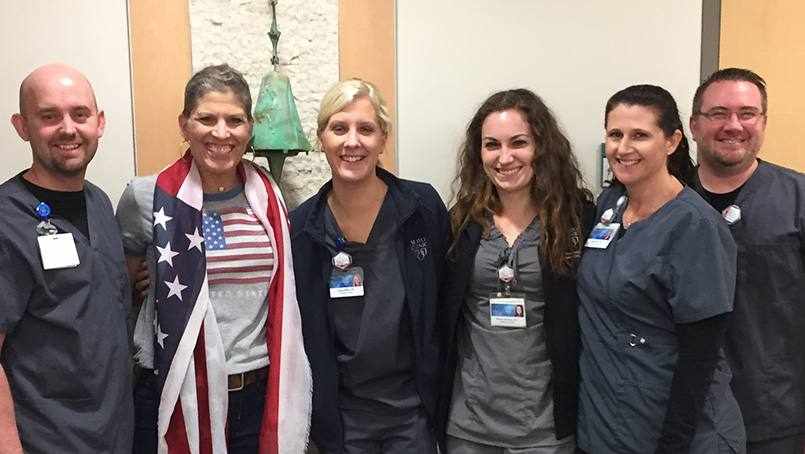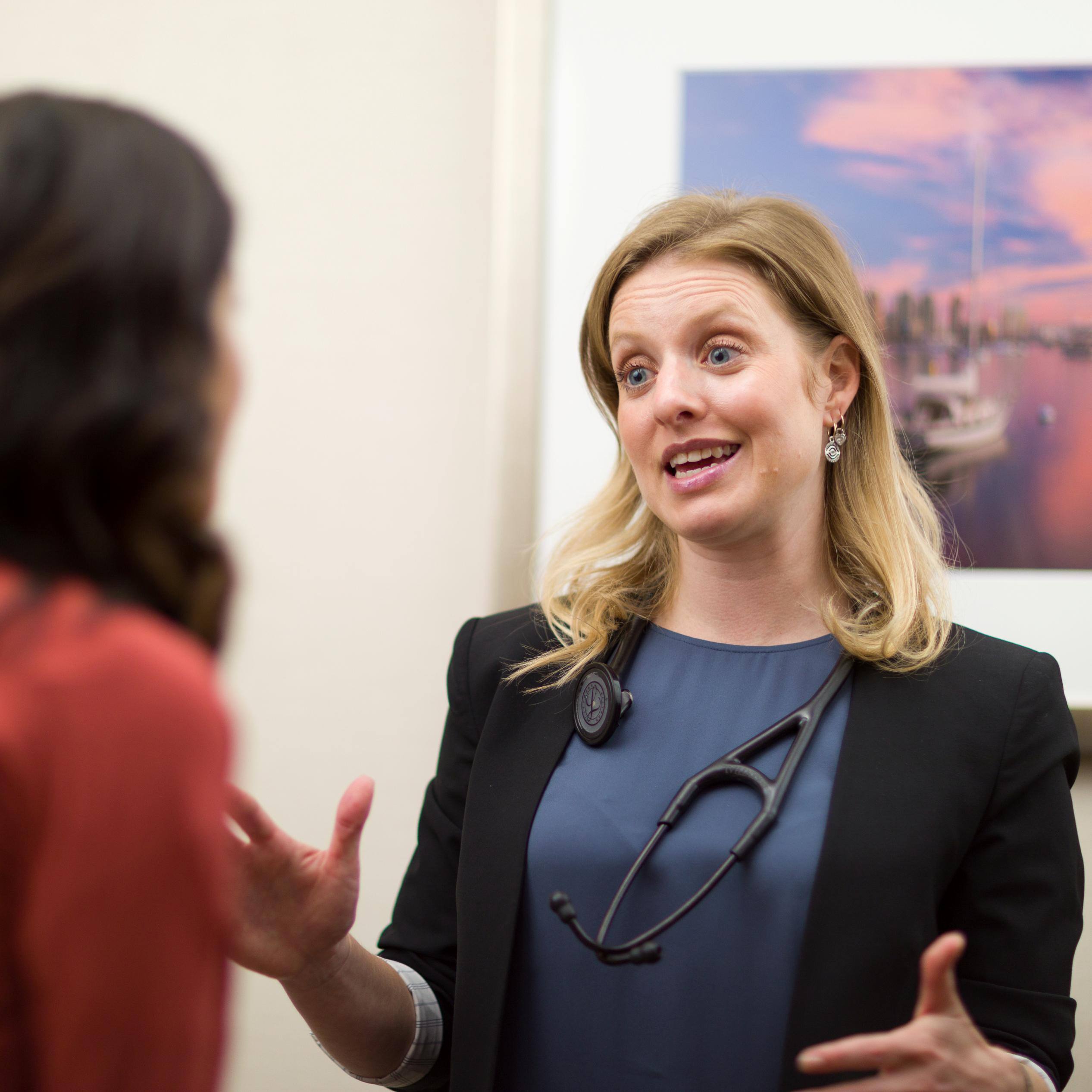-
In the Loop: History teacher with breast cancer finds hope

Last year, while being treated for a recurrence of the melanoma she was first diagnosed with in 2003, Sandy Morse felt a small lump in one of her breasts. She mentioned the lump to her surgeon during an appointment, and a biopsy confirmed what the 52-year-old history teacher at Horizon High School in Scottsdale, Arizona, says she already knew: She would now have to deal with breast cancer.
Surgery soon followed, after which Sandy says her oncologist delivered less-than-hopeful news. "He basically told me I had five years to live," Sandy tells us. "He said they'd give me some chemo that would maybe work and that we'd just 'play it by ear' from there." For the devoted wife, mother and teacher, however, that prognosis "didn't fly."
So Sandy — at the urging of her brother — made an appointment at Mayo Clinic's Arizona campus. There she met with oncologist Donald Northfelt, M.D., who Sandy tells us was "much more aggressive" in his proposed treatment plan and more optimistic about the long-term results. "He said, 'I think we have some things that can treat you here, and hopefully 20 years from now, you'll be sitting on your porch enjoying a beer, and life will be great,'" Sandy recalls. "And I said, 'I like your plan a lot better. Let's do it.'" Read the rest of the story.
______________________________________________
This story originally appeared on the In the Loop blog.







